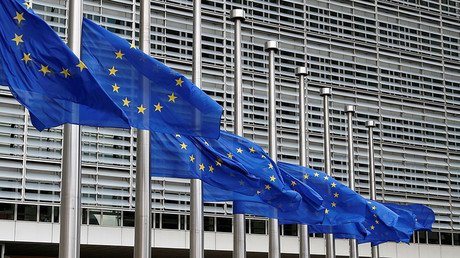Germany to join ‘fake news’ battle in Baltics with new Russian-language media
Germany will help Estonia, Latvia, and Lithuania to set up Russian-language media outlets to counter the alleged “systematic disinformation” coming from Russian channels broadcasting in the region, according to Foreign Office spokesperson Martin Schaefer.
The announcement came just before German Foreign Minister Sigmar Gabriel’s upcoming tour of Sweden and the Baltic states, which is scheduled to take place this week.
“During his trip, Mr. Gabriel will also employ what we already started last year in the Baltic states, which is – as we say in new German – handling Russian 'fake news' together with appropriate partners,” said Schaefer in Berlin on Monday.
The main goal of the initiative, according to Schaefer, is to create of Russian-language radio and TV channels, which will be “attractive to Russian speakers living in the three Baltic states,” in order to produce news “in a different way” from Russian outlets.
READ MORE: US backed Russian-language channel launched in Prague to spread ‘alternative’ views
Germany has eagerly joined the trend to combat the 'fake news' phenomenon - which gained traction following the scandal-plagued US presidential elections - already blaming Moscow for alleged “election meddling” in a poll which is only scheduled for September. Germany’s security services have even mulled the creation of a special unit to tackle 'fake news' exclusively.
But while the German government is preoccupied with countering perceived “Russian propaganda” in the Baltic states, it turns a blind eye to the very real and discriminatory “non-citizen” status of Russian speakers in these countries, Rainer Rothfuss, a political analyst and consultant told RT.
“It’s really unacceptable that we engage in media programs in Russian language on behalf of the German government and its broadcasting station, Deutsche Welle, to inform the Russian population, but we neglect that at the same time that a population of Russian origin, greater than 100,000 people in Estonia alone, has non-citizen status,” Rothfuss said.
“They are discriminated against by the government, they are barred from certain professions, and nobody seems to care inside the EU and also the German government, even though we abide by minority protection inside the EU.”
Such double standards can be explained only “by geopolitical, strategic thinking,” as we live through an “information war going on between East and West,” Rothfuss added.
The decision to create new Russian-language outlets in the Baltic states accompanies other allegedly “defensive” activities against the so-called “Russian aggression,” which range from building impressive border fences to deploying additional NATO troops. Germany’s forces, deployed to Lithuania, plays a major role in this buildup.
READ MORE: German intel finds no proof of Russian ‘disinformation ops’ against Berlin – govt source
Moscow has repeatedly denied the allegations of aggressive behavior, saying it’s the biggest NATO’s military buildup in Eastern Europe since the Cold War which undermines the security balance in the region.













